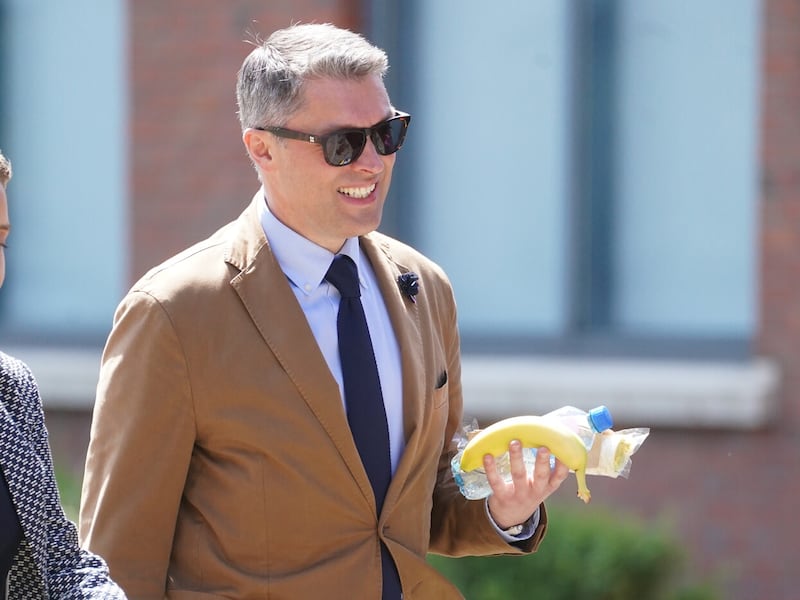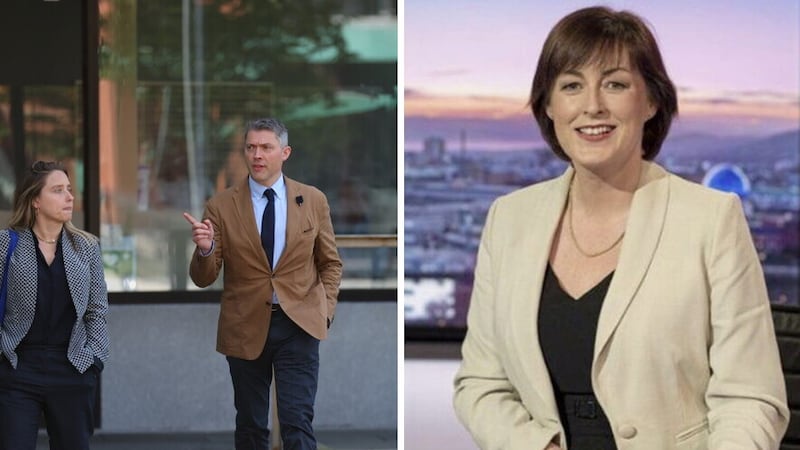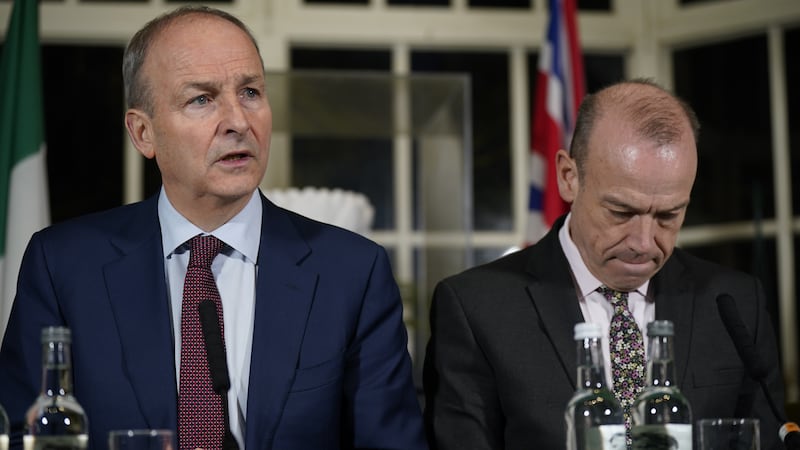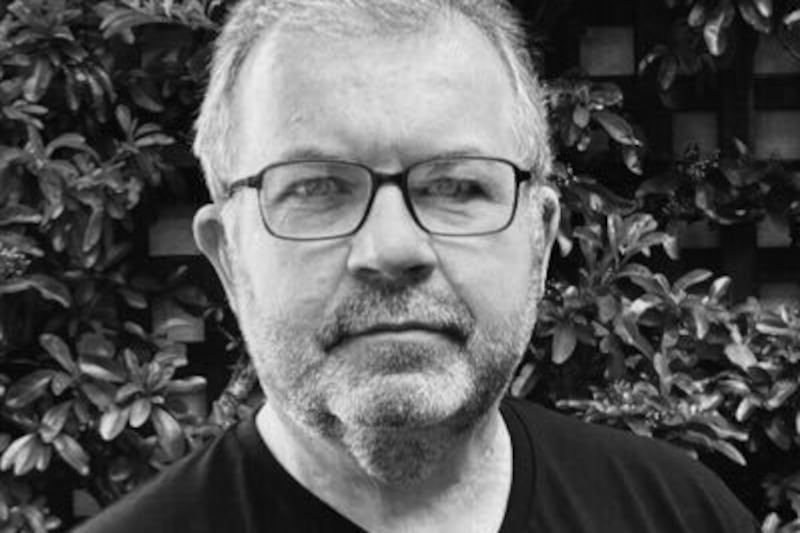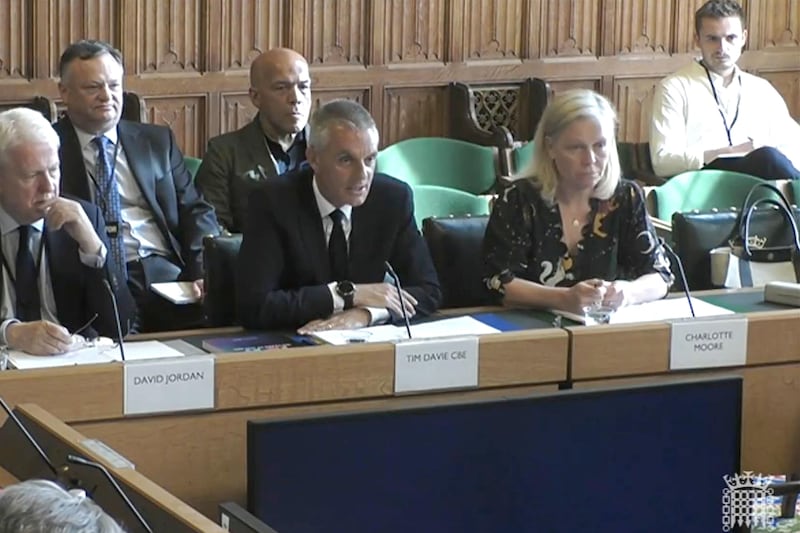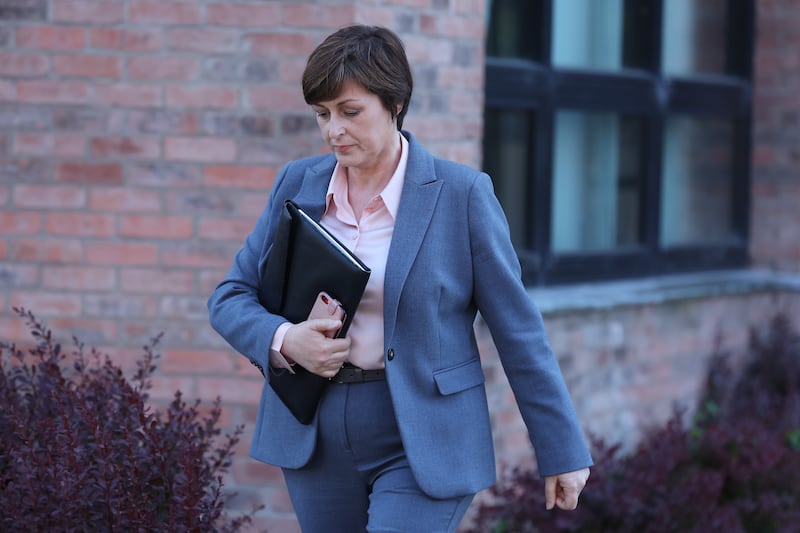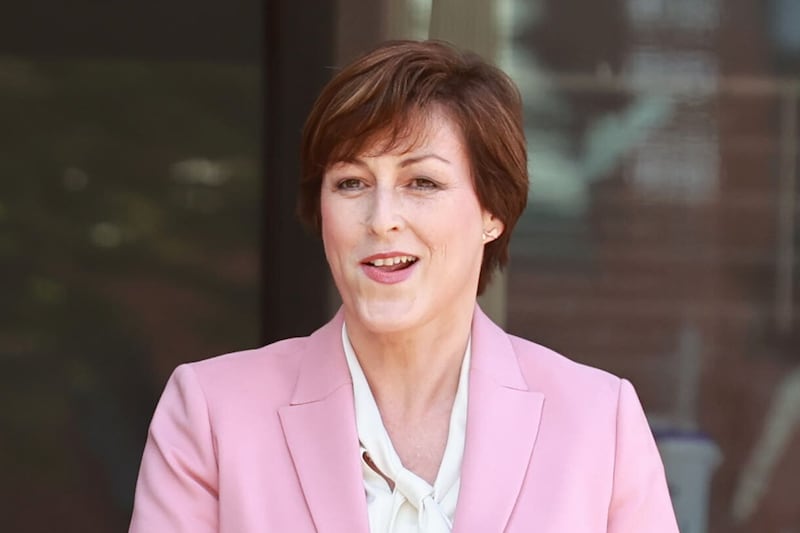Former BBC Newsline presenter Donna Traynor claims she was subjected to more than a year of "bullying and harassment" after objecting to changes that would have seen her role on the flagship television news programme reduced.
Ms Traynor, who resigned from the broadcaster in November 2021, is claiming discrimination on grounds of sex, age and disability with the focus of the allegations on the restructuring of BBC News in 2019.
The plan was to have BBC Newsline presented by a male and female, with Ms Traynor sharing the television role with Tara Mills while also moving to radio, notably Evening Extra.
When Ms Traynor objected, it led Ms Traynor to be "treated in a manner that amounted to bullying and harassment", her counsel Paddy Lyttle said.
The tribunal heard that Ms Traynor, 55 at the time, had worked at the BBC for 33 years. Her contract, from 2008, was to present BBC Newsline for five nights a week and had not changed by the time her dispute with the broadcaster began, the tribunal heard.
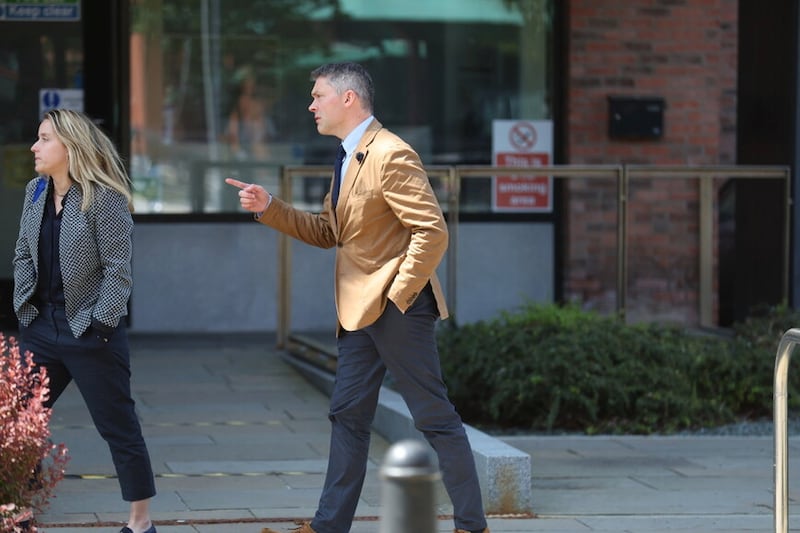
She had enjoyed a successful career and that her evaluations were always of the "highest level".
Her evaluation in 2018, made by Mr Smyth, congratulated the presenter on another strong year as a presenter of BBC Newsline. Mr Smyth also assured Ms Traynor her role as BBC Newsline presenter "would not be diminished".
However, Mr Lyttle described his client as becoming worried by June of the following year as a voluntary redundancy programme was initiated.
The barrister described the voluntary redundancy as a "ruse, a ploy" to ease out the "old crop". The package was offered to presenters of programmes of at least 30 minutes in length, clearly, Mr Lyttle argued, targetted at the "more experienced and, bluntly, older presenters".
It led to Seamus McKee, Wendy Austin, Noel Thompson and Karen Patterson, effectively the loss of three as the former two only worked half the full-time hours, the tribunal heard.
"There was a whiff of ageism in the air," said Mr Lyttle.
Later that year, BBC News NI, with Mr Smyth at its head, then drew up plans to restructure the presenter line ups on radio and Newsline.
The plan was to have Ms Mills and Ms Traynor sharing the Newsline role with a male presenter. Mr Lyttle said the rota clearly stated management wanted two women across Newsline and radio with a new male presenter on the flagship television programme.
"We are recruiting a man...full stop...that's sex discrimination," argued Mr Lyttle, adding that it was not about people listening or watching the news because of the "ability of the presenter irrespective of religion, age or anything else".
The plan was also to increase the female presence on radio, the tribunal heard.
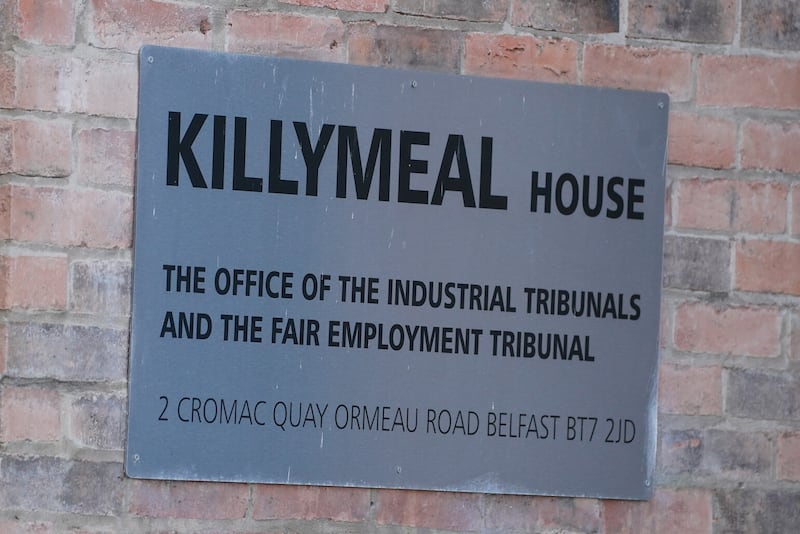
In early December, Mr Smyth presented the plan as a "fait accompli" despite Ms Traynor's deep objections. Following the public announcement of the changes, Ms Traynor immediately filed a grievance.
A BBC manager was drafted in to oversee the grievance process. In correspondence, it emerged management believed the plan to increase the female presence and that they were allowed to "positively discriminate" in favour of women. Mr Lyttle argued that is not legally correct.
Ms Traynor's counsel characterised the process as "going out of the way" to back Mr Smyth and his decisions, strongly suggesting they were backing him and did not recognise discrimination was in play.
"And they still do not recognise. Not only do they support him, they promoted him and put him in charge of the BBC in Northern Ireland," said Lyttle, referring to Mr Smyth's promotion to director.
The start of the tribunal hearing was delayed after some discussion over the lack of seating for all those wanting to attend. Mr Lyttle claimed the BBC was packing the room with its people, described as a "serious allegation" and rejected by Frank O'Donoghue, counsel for the broadcaster.
The hearing continues
